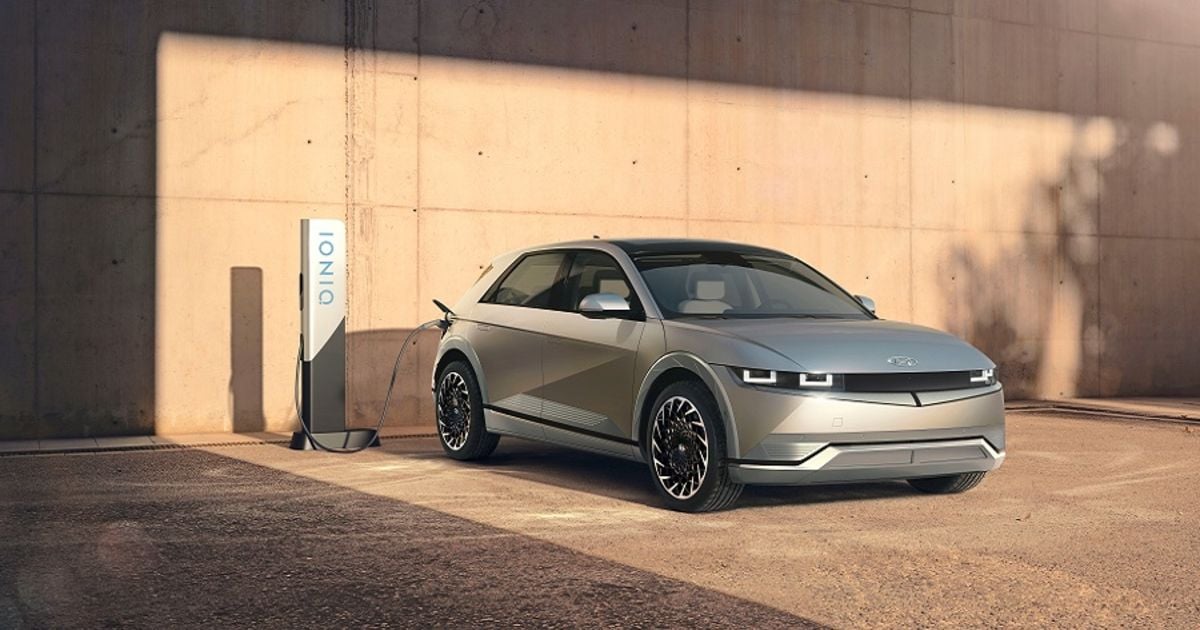
Hyundai Motor Co. is making the most out a provision in the Inflation Reduction Act that allows automakers to pass along a $7,500 clean vehicle tax credit to buyers if they opt to lease an electric vehicle.
The law, enacted in August, immediately disqualified EVs assembled outside North America from credit eligibility. And Hyundai’s three EVs — the Ioniq 5 and Kona crossovers and Ioniq 6 sedan — are all built in South Korea.
Jose Muñoz, CEO of Hyundai and Genesis North America, told Automotive News the impact of that rule was “significant,” and Hyundai’s EV market share dropped “the moment” the law was put in place.
To remain competitive, Hyundai is leaning on a section of the act, called 45W, that lets the tax benefit reach consumers if they lease their EV instead of buy it.
“We’ve tried to maximize the utilization of the so-called 45W paragraph, which allows for sales through the lease channel to benefit from the $7,500 tax advantage,” Muñoz said at this month’s New York auto show.Despite being early to market and enjoying robust sales, Hyundai EVs slipped in market share from 3.5 percent at the end of 2022 to 3.1 percent through February this year, according to registration data from Experian.
In 2022, the Ioniq 5’s monthly sales peaked in June at 2,853; they dipped to 1,306 in September following the change in incentive structure. The electric crossover’s sales fluctuated through the end of the year but remained below 1,800, according to the Automotive News Research & Data Center.
When applied to a lease, the tax credit is not subject to the same eligibility restrictions as it is for the purchase of a new EV. The rules on North American sourcing are waived, and it is the lender that receives the credit – and then bakes the equivalent savings into the customer’s monthly payment.
According to Hyundai, leases made up just 5.5 percent of all its EV sales in 2022. In the first quarter of this year, leases accounted for 27 percent of all EV sales compared with just 12.5 percent across all models in the same time frame.
Even though Hyundai has pivoted its EV leasing strategy, Muñoz said it’s not the cure.
“We believe the consumers are the ones who are losing because they will not be able to benefit other than a lease,” he said, noting that Hyundai estimates that leasing represents only about 10 percent of the EV segment across the industry.
“We are not competing in 90 percent of the segment, so it’s a big handicap,” he said.
The rug was pulled out from under Hyundai and its sibling brand Kia America just months after parent Hyundai Motor Co. confirmed it would invest $5.5 billion to build an EV and battery complex outside Savannah, Ga., for its Hyundai, Genesis and Kia brands.
The plant will have the capacity to produce up to 500,000 EVs a year and will bring 8,100 jobs to the state. But it will not be ready until January 2025, Muñoz said.
Genesis, Hyundai’s luxury division, has one EV that qualifies for the $7,500 credit: the Electrified GV70 crossover. Hyundai retooled part of its Montgomery, Ala., factory last summer so it could build the premium EV as well as the hybrid version of the Hyundai Santa Fe crossover.
The retooling announcement was made at the New York auto show in April 2022 and was fortunate timing considering the tax rule changes that would come later. The Electrified GV70 started production last month.
Muñoz has been candid about the company’s disappointment at being left out of tax credit eligibility, especially after making such a large commitment to U.S. manufacturing, as well as its objective to convert half of all its U.S. sales from gasoline to electric by 2030.
In California, the largest car market in the U.S., Hyundai has a more aggressive goal of hitting 100 percent EV sales by 2035.
“Basically, we need [to build] a lot of EVs here,” Munoz said.